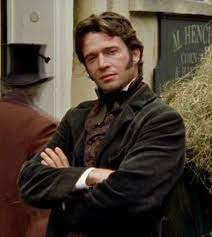Write a detailed note on Henchard’s decline and downfall in the novel The Mayor of Casterbridge
Thomas Hardy's work The Mayor of
Casterbridge tells the terrible story of Michael Henchard, a man whose ascent
to fame is eclipsed by an unrelenting fall into ruin. The story revolves around
Henchard's character, and as he ages, his fall becomes a potent examination of
human frailties, the results of rash decisions, and fate's unbreakable hold.
1. The Initial Ascent:
The narrative of Michael Henchard
starts with a spectacular incident: while intoxicated, he sells his wife,
Susan, at a fair. Henchard's character begins to grow despite this morally
repugnant deed when he makes the decision to give up alcohol for 21 years—a
move that shows responsibility and a desire to better oneself. His town
respects him for this display of self-control, which also paves the way for his
eventual success as Casterbridge's mayor.
2. Mayorship and Social Standing:
Henchard's ascent to the mayoralty
emphasizes his resolve to learn from his faults and gain social respectability.
His leadership abilities along with his commercial achievements guarantee him a
prominent position in Casterbridge society. But while his success is predicated
on a precarious foundation of secrets, deceit, and the repression of his actual
character, the seeds of his collapse are sown in this same ascension.
3. Character Flaws and Impulsiveness:
One of the key factors contributing to Henchard's decline is his impulsive nature. His decisions, often made in the heat of the moment, have far-reaching consequences.
Also Read-
- Attempt A Critical Analysis Of The Poem Pied Beauty
- What Role Does Madame Defarge Play In The Novel A Tale Of Two Cities
- The Character Sketch Of Susan Henchard In The Mayor Of Casterbridge
Write a detailed note on Henchard’s decline and downfall in the novel The Mayor of Casterbridge-The sale of his wife, the
harsh treatment of his daughter Elizabeth-Jane, and his volatile relationships
with others showcase a lack of foresight and self-control. These character
flaws become the catalysts for his eventual downfall.
4. Alienation and Loneliness:
As Henchard rises to power, he
becomes increasingly isolated from those around him. His stern demeanor and
inability to form genuine connections contribute to his loneliness.
BUY PDF & Book
WhatsApp - 8130208920
The alienation he experiences
heightens his internal struggles and sets the stage for his downfall.
Henchard's inability to reconcile with his past and build meaningful
relationships with others creates a pervasive sense of isolation that
intensifies as the narrative unfolds.
5. The Return of Susan and the Ghosts of
the Past:
The return of Susan, whom Henchard
believed dead, acts as a catalyst for his downfall. The revelation of her
survival exposes Henchard's past sins, shattering the carefully constructed
façade of his respectable life. The ghosts of his earlier transgressions
resurface, haunting him and initiating a chain of events that propel him
towards his tragic fate. The return of Susan also introduces new complexities
to Henchard's relationships, further complicating his already precarious social
standing.
6. Business Failures and Financial Ruin:
Henchard's decline is exacerbated
by a series of business failures. His overconfidence and unwillingness to adapt
to changing economic circumstances contribute to financial ruin. The collapse
of his hay and corn business marks a turning point in his fortunes, as he loses
not only his wealth but also the social status that had defined his identity.
7. Relationship Struggles:
Throughout the novel, Henchard's relationships, particularly with his daughter Elizabeth-Jane and the young Scotsman Farfrae, are fraught with tension and conflict.
Write a detailed note on Henchard’s decline and downfall in the novel The Mayor of Casterbridge-His attempts to
control and manipulate those around him, driven by insecurity and fear of
losing what little remains of his standing, only serve to push people away. The
deterioration of these relationships further accelerates his decline, leaving
him increasingly isolated and desperate.
8. Public Humiliation and Ostracism:
As Henchard's secrets unravel, the
public perception of him undergoes a drastic transformation. The man who was
once the esteemed mayor of Casterbridge becomes a pariah in the eyes of the
community. Public humiliation, fueled by the exposure of his past misdeeds and
his inability to adapt to changing circumstances, intensifies his sense of
shame and accelerates his downward spiral.
9. The Symbolism of Weather:
Hardy employs the symbolism of
weather throughout the novel to underscore Henchard's emotional and
psychological state. The stormy weather during critical moments in Henchard's
life reflects the turmoil within him. The use of weather as a literary device
adds depth to the narrative, emphasizing the inextricable link between
Henchard's internal struggles and the external forces that contribute to his
downfall.
10. Tragic Resolution and Redemption:
The culmination of Henchard's
decline occurs in the tragic resolution of the novel. Facing complete ruin and
abandoned by those he once sought to control, Henchard's redemption becomes a
complex and nuanced exploration of personal responsibility and the consequences
of one's actions. His tragic fate serves as a cautionary tale about the
destructive power of pride, impulsive decisions, and the inability to confront
one's past.
Conclusion
In The Mayor of Casterbridge Thomas
Hardy writes a moving story that revolves around Michael Henchard's sad decline
and demise. Henchard's story offers a comprehensive examination of the
complexities of human nature, from his early ascension as a man determined to
learn from his mistakes to his ultimate ruin caused by rash judgments,
character defects, and the unstoppable forces of fate. The book explores the
negative effects of arrogance, the solitary nature of deeds, and the entangling
hold of a past tainted by moral failings.
As Henchard faces public
humiliation, financial ruin, and the unraveling of his carefully constructed
life, Hardy paints a cautionary tale that resonates across time, urging readers
to reflect on the choices they make and the enduring impact of those choices on
their destinies.
IMPORTANT QUESTIONS
Q 1. How does Michael Henchard's impulsive nature contribute to
his downfall?
Henchard's impulsive decisions,
such as selling his wife at a fair and later vowing to abstain from alcohol,
set the stage for his eventual decline. His lack of foresight and self-control
leads to a series of actions with far-reaching consequences, contributing
significantly to his downfall.
Q 2. What role does the return of Susan play in Henchard's
decline?
Susan's unexpected return exposes
Henchard's past sins, shattering the facade of his respectable life. This
revelation initiates a chain of events that accelerates Henchard's tragic fate,
as he grapples with the consequences of his earlier actions and faces the
complexities of renewed relationships.
Q 3. How does weather function as a literary device in the
novel?
Hardy uses weather as a symbolic
element throughout the novel to reflect Henchard's emotional and psychological
state. Stormy weather during critical moments emphasizes the turmoil within
Henchard, adding depth to the narrative and highlighting the inextricable link
between internal struggles and external forces.
Q 4. What role do relationships play in Henchard's decline?
Henchard's strained relationships,
particularly with his daughter Elizabeth-Jane and the character of Farfrae,
contribute significantly to his decline. His attempts to control and manipulate
those around him, driven by insecurity, intensify conflict and isolation,
hastening his downward spiral.
Q 5. How does Henchard's public standing change over the course
of the novel?
Initially rising to prominence as
the respected mayor of Casterbridge, Henchard experiences a drastic
transformation in public perception. The exposure of his past misdeeds and his
inability to adapt to changing circumstances lead to public humiliation,
marking a profound shift from societal esteem to ostracism.
Q 6. Does Henchard find any redemption in the novel?
Henchard's redemption is complex and nuanced. Faced with complete ruin and abandoned by those he sought to control, he undergoes a tragic resolution that prompts reflection on personal responsibility. While the novel does not offer a conventional redemption arc, Henchard's fate serves as a cautionary narrative about the consequences of pride and impulsive actions.








0 comments:
Note: Only a member of this blog may post a comment.